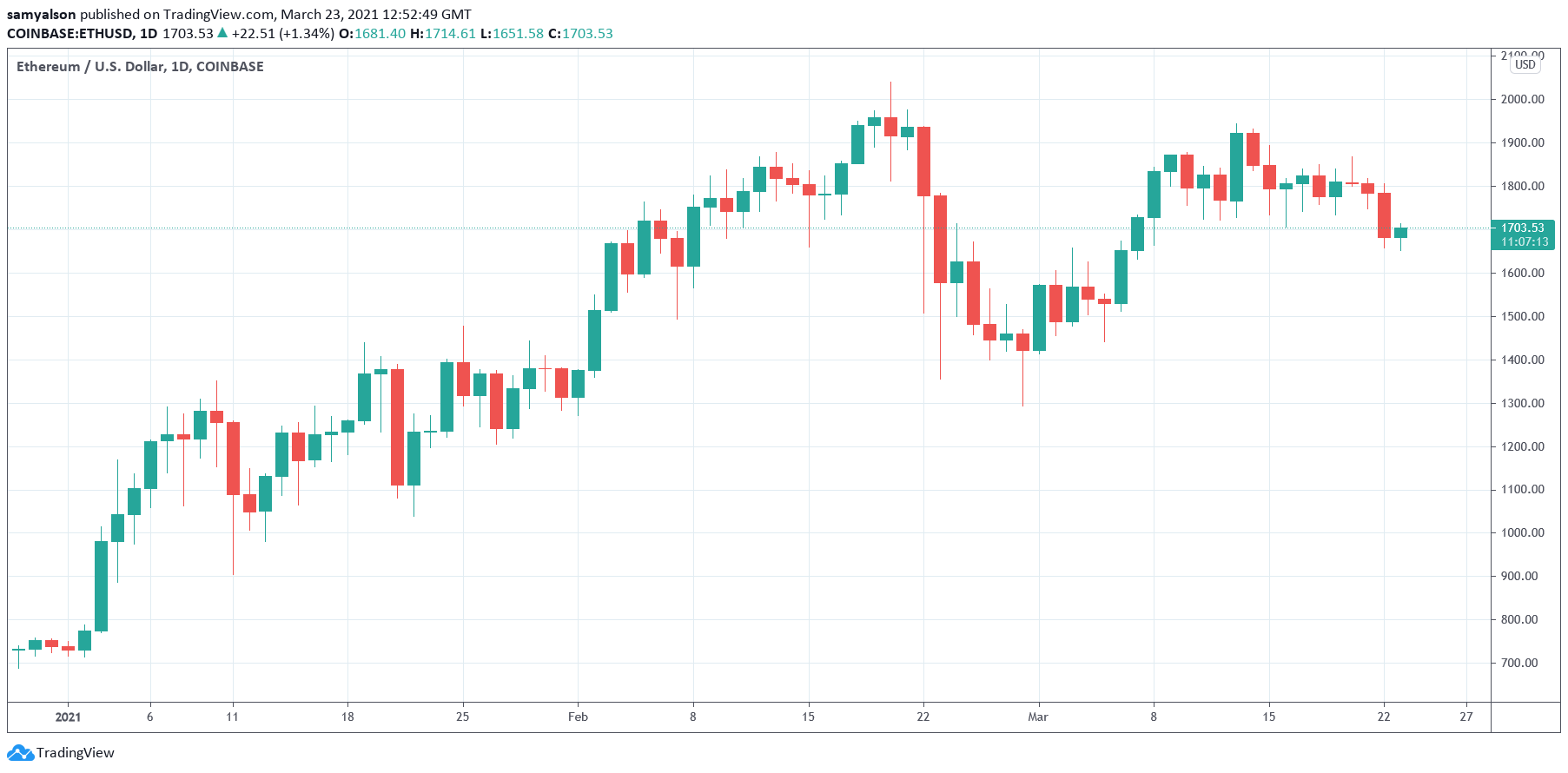Pomp Predicts Secondary Market for NFTs Will Drive Even Greater Demand

NFTs are all the rage at the moment. At the same time, some, including Mike Winklemann, AKA Beeple, have described the situation as a bubble.
“I absolutely think it’s a bubble, to be quite honest. I go back to the analogy of the beginning of the internet. There was a bubble. And the bubble burst.”
Nonetheless, Bitcoin-bull Anthony Pompliano predicts a maturation of the NFT use case outside of buying and selling. He sees growth in the secondary market in the form of generating revenue streams through NFT assets.
The NFTs Phenomena is Just Beginning
Pompliano described the current NFTs market as the start of something bigger. He argues that in much the same way as the internet forced new applications and different ways of doing things, NFTs will also change the status quo.
Speaking to CNBC’s host of Mad Money Jim Cramer, Pompliano shared his vision for NFTs by making a case for secondary markets. He opened with the example of a virtual museum accessible via virtual reality. Owners of NFT assets can display their property in the virtual museum and presumably receive a royalty from the visitors.
“Whether that’s these virtual museums. Where you can buy a digital good and display it in a virtual museum, and Jim can go in virtual reality and actually visit that place.”
As well as that, Pompliano said NFTs could guarantee revenue from secondary market resales. In the case of event tickets, the primary seller only gets paid once. But with an NFT ticket, it’s possible to automate revenue each time the ticket is resold.
“if it’s a digital good and I can actually code into the asset and say, ‘hey, every time this trades hands I want 10%.’”
Pre-Covid, the secondary tickets market was estimated to be worth $15bn, none of which goes to artists or those responsible for the event.
Scarcity is What Drives Price
The arguments against NFTs remain as pertinent as ever, perhaps more so considering the vast sums commanded by in-demand artists.
Pompliano brushes aside this argument on the grounds of scarcity. He says NFTs follow the same demand and supply principles as all other markets.
“Let’s remember what drives a lot of value. What drives the value of Bitcoin? Scarcity, there’s 21 million of them. What drives the traditional art market? Scarcity. What drives Supremes and sneakers and kind of all of that economy and culture? Scarcity.”
Following this train of thought, the $69.3mn pricetag for Beeple’s The First 5000 Days is justifiable. Vignesh Sundaresan, who bought the piece, described it as representing 13 years of work, saying it transcends skill and technique because it embodies time. The one thing that cannot be “hacked.”
Sundaresan added that he believes the artwork is worth $1bn.
Source: Read Full Article


